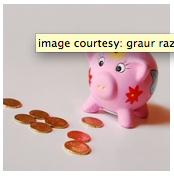 It is essential for women, now more than ever, to stay knowledgeable of their financial situation. I am a firm believer in empowering women to achieve personal and financial success, and one of the first steps on that path is to know how to manage your income and properly save.
It is essential for women, now more than ever, to stay knowledgeable of their financial situation. I am a firm believer in empowering women to achieve personal and financial success, and one of the first steps on that path is to know how to manage your income and properly save.
The good news is that technological advances and hundreds of free resources are available to assist with creating a budget, cutting down on debt and developing a savings plan. Here are my five smart tips to successfully save money:
- Create a Budget. Developing an easy-to-follow plan to manage your budget can be easily accomplished, but first you must review your net income, which is the money you have available after taxes. Next, know your expenses and always include savings as one of those expenses. After determining net income and expenses, you are ready to set a personal budget.
- Plan to Save. As mentioned above, it is essential to incorporate savings into your expenses to ensure you are preparing for the future. Instead of having one savings account like so many have, try opening several accounts and categorizing them. Examples may include retirement, vacation, Christmas and college education. When depositing into these accounts, utilize a savings calculator to give you an idea of how quickly you will reach your goal.
Also, sign up for direct deposit through your employer. This way you can choose to have a specific dollar amount or percentage of each check deposited directly into a savings account. For those without direct deposit, most banks allow you to set up a monthly automatic transfer between linked checking and savings accounts.
- Know your Credit Score. One of the biggest mistakes women make with finances is not regularly checking their credit scores. Making sure your credit score, or FICO score, is high and accurate is important because it can determine what you pay for auto financing and leasing, credit cards, mortgages and insurance. It can even affect whether or not you get a job or rent an apartment.
If you don’t have a recent credit report, order one. Make sure you take responsibility for creating your own personal credit history by reviewing your credit report regularly and checking for errors, limit the number of credit cards you open and most importantly – pay your bills on time.
- Cut Credit Card Debt. Stop using credit cards to prevent incurring additional debt. Next, review your credit card balances and make at least the minimum payment on every credit card each month. Additional money should go toward paying off the card with the highest interest rate. After the first card is paid off, use the money that was being paid toward that card to pay off the card with the next highest rate. Always know what you are paying; new laws require more clarification on how your payment is being applied, whether it’s toward interest, fees or principal.
- Utilize Online Banking. Online banking allows the luxury of having access to your accounts 24 hours a day and can help preserve your credit rating. This allows you to review account activity and monitor the account for cleared checks, which will help reduce overdraft fees. Setup automatic bill pay through online accounts to ensure that you won’t incur penalties for forgetting to send in payment. Many banks have online resource centers with tools available at no cost, including financial calculators, economic newsletters, budget applications, online bill pay and online security tools and applications.


















